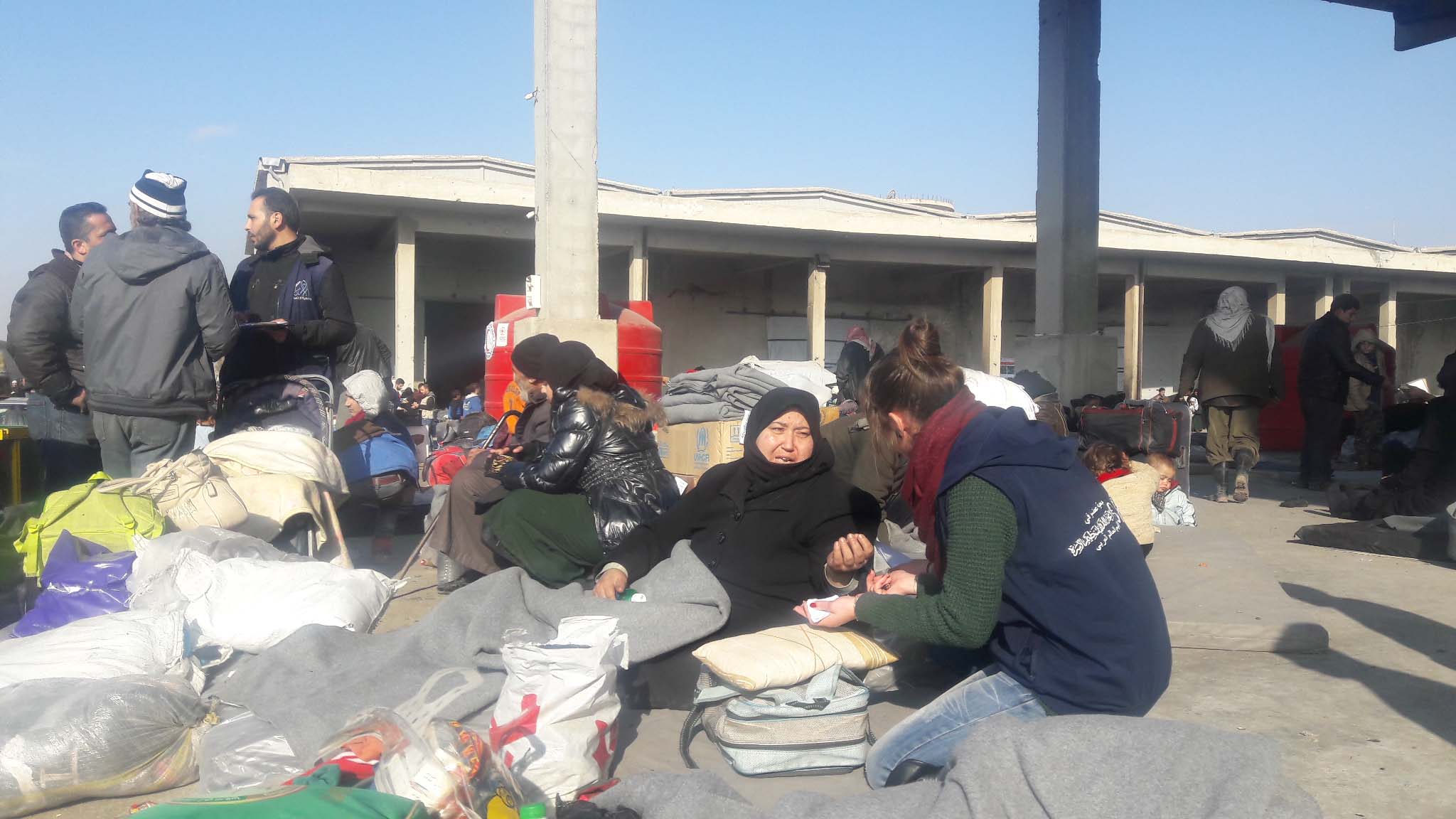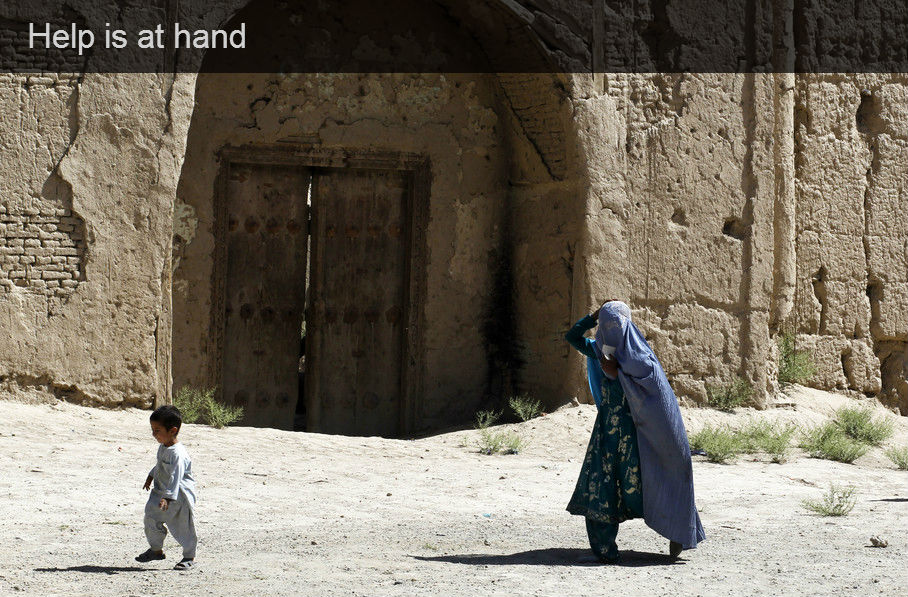
Spotlight
A selection of news from across the Federation

IPPF Statement on the 68th session of the Commission on the Status of Women (CSW)
IPPF welcomes the agreed conclusions of the 68th session of the Commission on the Status of Women (CSW), on the theme of “Accelerating the achievement of gender equality and the empowerment of all women and girls by addressing poverty and strengthening institutions and financing with a gender perspective”. IPPF actively engaged in the process by providing technical inputs to Member States, raising awareness about the interlinkages between SRHR, poverty, gender equality and the empowerment and human rights of all women and girls.
Filter our news by:


| 01 December 2023
IPPF marks World AIDS Day by announcing the launch of a special program to roll out new biomedical HIV prevention methods
IPPF provides comprehensive sexual and reproductive health care to clients around the world. HIV testing, prevention, and treatment services are essential parts of our integrated sexual and reproductive health care package. To expand the choices individuals have to protect themselves from HIV, IPPF is excited to announce a special program to provide the newest methods of HIV prevention - injectable PrEP (a 2-monthly injection of cabotegravir-LA) and the vaginal ring (a monthly vaginal ring of dapivirine), as well as expanding where oral PrEP is offered. This program is being launched through a consortium of IPPF Member Associations called the Consortium to Advance Access to new HIV Prevention Products (CAAPP) - led by Family Planning Association of India, and including the Family Life Association of Eswatini, Lesotho Planned Parenthood Association, Family Planning Association of Malawi, Federation of Reproductive Health Associations, Malaysia, Family Planning Association of Nepal, and Planned Parenthood Association of Thailand. We hope this program will increase access to the number of ways people can protect themselves from HIV, supporting individual's choice to find an HIV prevention method that works for them.

| 16 December 2016
Plea for Aleppo
My Name is Dr Lama Mouakea. I am the Executive Director for the Syrian Family Planning Association. We are now in the fifth year since the start of unrest in Syria, the situation continues to worsen. With half million people being killed and more than ten million having fled their homes, the conflict has now escalated, violently affecting the people in Aleppo, Syria’s largest city. We still are in Aleppo. The situation is difficult. We are struggling to survive. People are coming here because they are not safe. Thousands have left East Aleppo in fear. It is cold. People walk long distances. There is so much crowding and for my staff the hours are very long. There are too many people. Everywhere is crowded and this limits where we can find spaces to provide our services. The security situation in the city means that we are trying to deliver services and see as many people as we can. We know that who we treat today we may not see again. We are providing the highest number of services from mobile clinics, to contraceptive supplies, to essential medicines including vitamins. We have medical teams and volunteers providing sexual and reproductive health services, psychosocial and paediatric through a range of mobile clinics and mobile teams so we can reach people. The risks for women and girls from sexual violence is high. We have seen many cases in our psychosocial support of violence that this kind of displacement exposes them to. We provide tailored support to the survivors of sexual violence, which has increased enormously during the war. There isn't enough services for the people. The demand is high and we need more assistance. With such high numbers and suffering, our internally displaced need urgent help. My staff are also suffering. We cannot keep up and want to survive. We won't leave because our place is here to help our people. I can only hope that the world can hear me. Please consider the Syrian people and what we are going through. We need money to give hope to people and help them survive and save lives. Support IPPF's work in Aleppo DR LAMA MOUAKEA | Executive Director, the Syrian Family Planning Association Mrs. Lama Mouakea has been the Executive Director of the Syrian Family Planning Association (SFPA) for the last 19 years and has a long history of working with sexual and reproductive health services. Currently she is responsible for supervision of 114 staff and coordination of 600 volunteers. Under her leadership the SFPA has played a major role in responding to the emergency situation in Syria, providing sexual and reproductive health services to people who are internally displaced due to the on-going conflict, with a focus on mother and child care and nutrition, psychosocial support, first aid and training of health personnel in the provision of clinical management for rape survivors and coverage of the minimum initial service package among a lot of other things.

| 20 July 2016
End gender based violence and HIV to ensure equity
18 July, Durban: Gender Based Violence (GBV) must be recognised and addressed if we are to end HIV and AIDS urged the International Planned Parenthood Federation (IPPF) and the United Nations Entity for Gender Equality and the Empowerment of Women (UN Women) at a panel during the International AIDS Conference Monday. The impact of HIV among women and girls in all their diversity is significant and alarming. Women’s greater physical vulnerability to HIV is compounded by social norms, gender inequalities, poverty and violence. Women living with HIV are also more likely to face stigmatisation, infertility, and even abuse and abandonment, contributing to their disempowerment. In East and Southern Africa, the risk of HIV among women who have experienced violence maybe three times higher In Uganda and South Africa studies found women who experienced intimate partner violence were 50 per cent more likely to have HIV than women who had not experienced violence. In many countries in Africa, getting married is among the ‘riskiest’ behaviour for women, where they may be exposed to unprotected sex with a husband who has multiple sexual partners, and to underlying power dynamics between men and women that prevent women from accessing condoms and then insisting on their use. Julia Omondi, a 24 year old advocate from Family Health Options Kenya (FHOK) highlighted the most common root causes of gender based violence and HIV, ‘I work with a group of 50 young girls like myself, called the 3E advocates to prevent girls from child marriage; support girls who are living with HIV to understand their rights, make parents and communities aware of the laws that protect girls from child marriage. We need to raise our voices to stop child marriage and turn the tide against HIV’. “Empowerment + Engagement = Equality” is a joint project supported by UN Women and IPPF implemented in Kenya, Malawi and Uganda to address HIV vulnerability among adolescent girls and young women by engaging and empowering them. Traditional leaders like the senior chief Theresa Kachindamoto from Malawi spoke of her role to change harmful gender related practices, she said, ‘Chiefs as custodians of culture should be at the forefront to end cultural practices that negatively affect people’s health like sexual cleansing (Fisi), chief blanket. My village is now a model for others and my fellow chiefs come to learn about the change I have brought to Dedtza district in Malawi.’ Nazneen Damji, Policy Advisor- gender equality, health and HIV/AIDS at UN Women, highlighted the recognition by global leaders on the importance of addressing GBV and HIV. “Violence, and the fear of violence, can play a major role in women’s reluctance to know her HIV status and seek care. Fortunately, the Political Declaration on HIV/AIDS adopted in June at the UN General Assembly and the Resolution on women, the girl child and HIV adopted at the 60th Session of the Commission on the Status of Women both call on governments to intensify efforts to end all forms of violence against women and girls, including harmful practices that contribute to the spread of HIV amongst women and girls” ‘Civil society organisations like IPPF play an important part in holding governments accountable. We shouldn’t underestimate our role as advocates to inform national, regional and global policies. If we are to address the dual epidemics of GBV and HIV we need to have progressive polices where perpetrators can be brought to justice and laws and policies uphold gender equality’ said Zelda Nhlabatsi, the executive director of Family Life Association of Swaziland (FLAS). The session was sponsored by IPPF Africa Region, UN Women and the Ford Foundation.

| 04 February 2016
A matter of life and death: IPPF's humanitarian response
Today, the Danish Family Planning Association (DFPA) together with the Danish All-Party Parliamentary Group (APPG) on Sexual and Reproductive Health and Rights, and the Danish Ministry of Foreign Affairs convened a conference with the International Planned Parenthood Federation (IPPF) on the challenges of sexual and reproductive health and rights (SRHR) in humanitarian crises. HRH the Crown Princess of Denmark and the United Nations Population Fund (UNFPA) were also in attendance. HKHK Mary: women are not vulnerable in hum crises because they are weak but because they lack equality #SRHRinCrises pic.twitter.com/EOhV38IpBi — Mette Gjerskov (@MetteGjerskov) February 4, 2016 More than 100 million people are in need of humanitarian assistance. It is estimated that 26 million are women and adolescent girls of reproductive age of which 500 die every day from complications related to pregnancy and childbirths. For example, the Syrian civil war has resulted in a 39% rise in maternal mortality since 2010 and gender-based violence is affecting at least 7 out of 10 women in some crisis settings. This shows a great need for humanitarian actors to ensure that the human rights of women and girls are protected and able to access sexual and reproductive healthcare. // IPPF: saving lives in crises Right now more than 250,000 women and girls need help. IPPF provides the emergency response needed, like family planning, which can reduce maternal deaths by 33%. SEXUAL & REPRODUCTIVE HEALTH SERVICES SAVES LIVES. AND IS A HUMAN RIGHT. Posted by IPPF on Thursday, 4 February 2016 The increasing number of humanitarian crises calls for serious rethinking of the current humanitarian response. The status of sexual and reproductive health and rights (SRHR) violations in humanitarian crises must be confronted and prevented. Over the past decade, IPPF has reached millions of people during floods, conflicts, earthquakes, cyclones when health care often collapsed, IPPF Member Associations continued to serve the unreachable particularly women which make three quarters of IPPF clients. We have an organizational strategy to address sexual and reproductive needs before, during and after humanitarian crises. IPPF starts with its Minimum Initial Service Package, which is life-saving, and transition to its Integrated Package of Essential services, which is life-changing. This ensure that a sxual and reproductive health situation is better after the crisis than before. @LcrTrc Crown Princess & @ippf CEO champion #women's #health & #rights in #humanitarian crisis settings pic.twitter.com/4ajLr0rkXg — Matthew Lindley (@t__box) February 4, 2016 Director general, Tewodros Melesse said, "Access to these services,especially in the midst of war or natural disaster, is a human right which does not only saves lives in the short run, but also helps build resilience amongst refugees and displaced people. It’s one of the most important aspects of humanitarian assistance that is often forgotten when disaster and conflicts strike."













